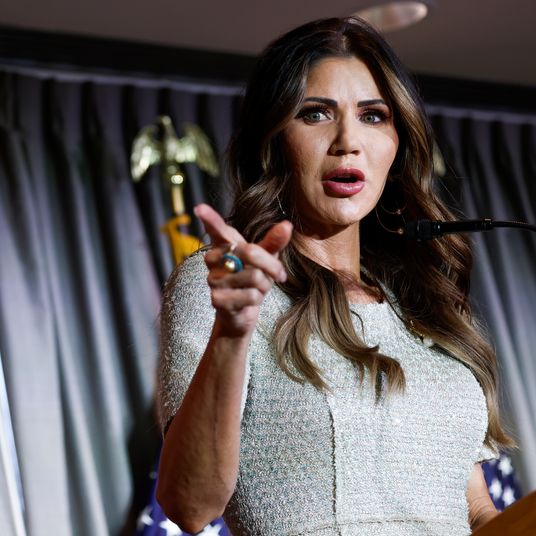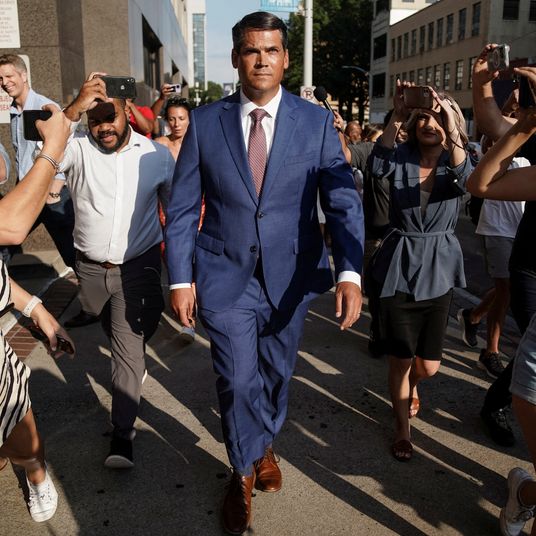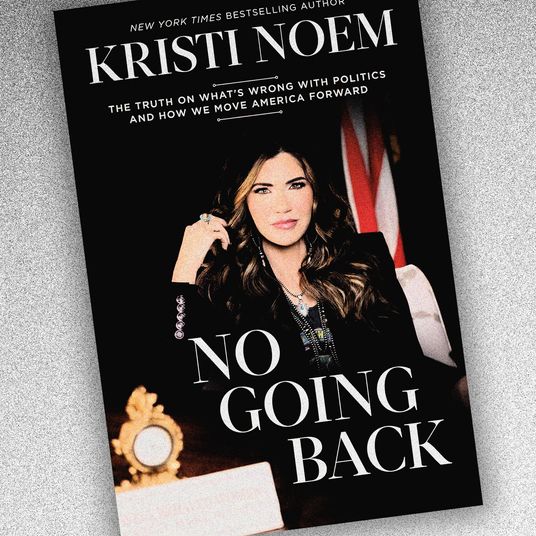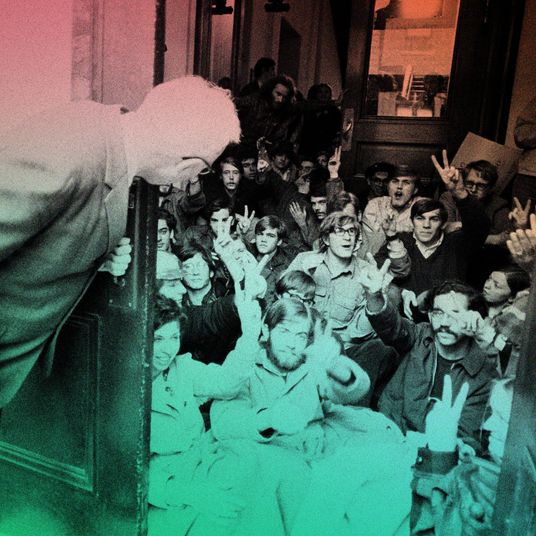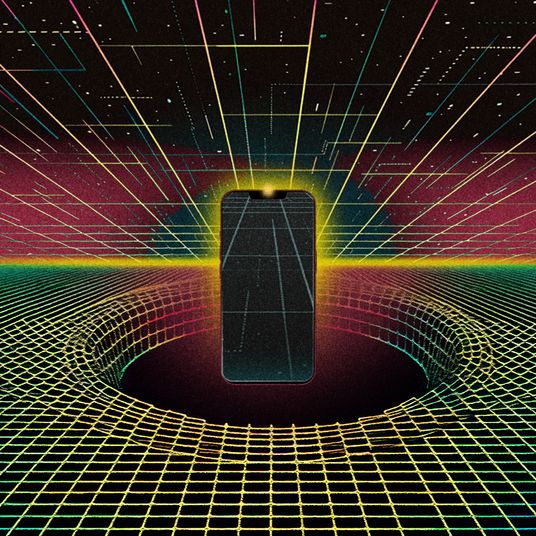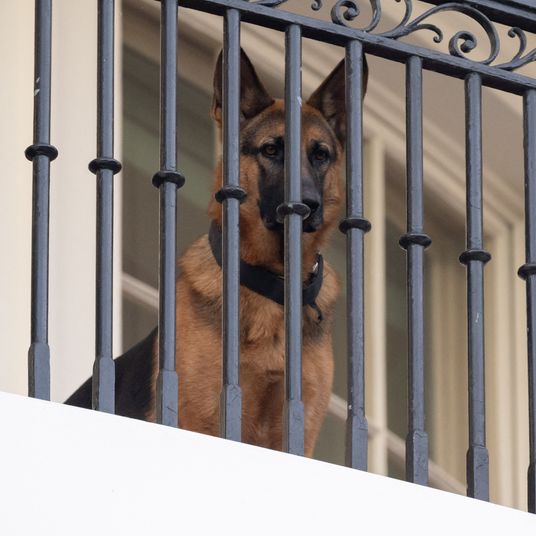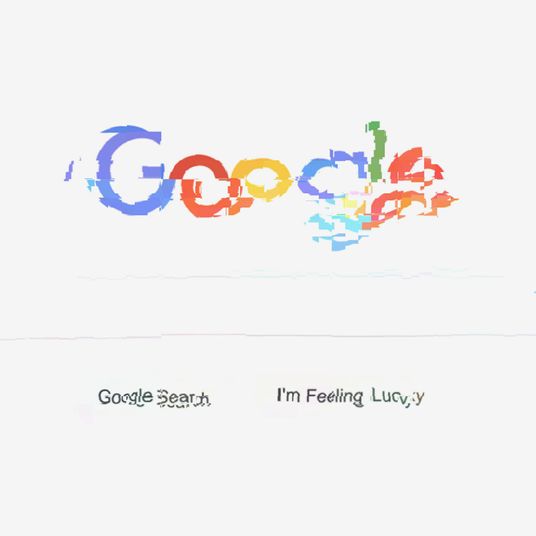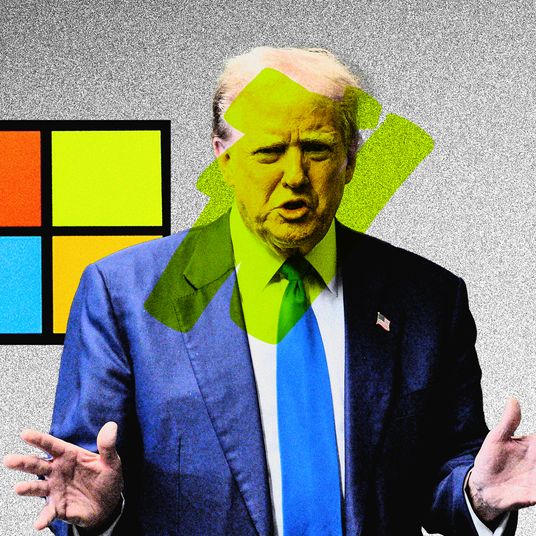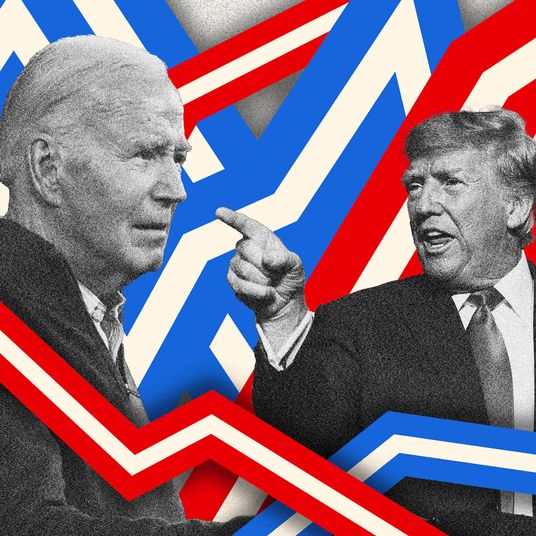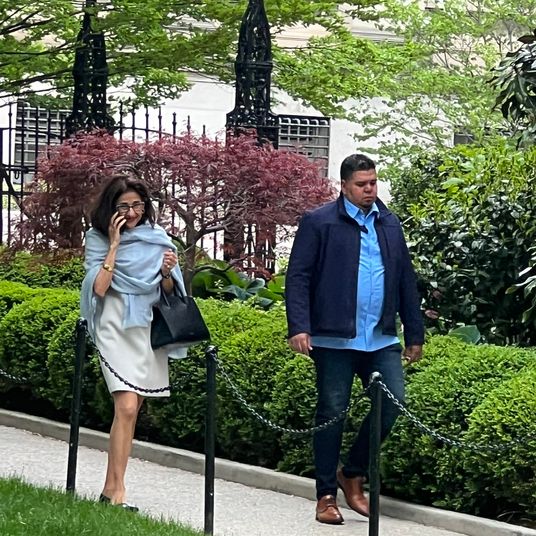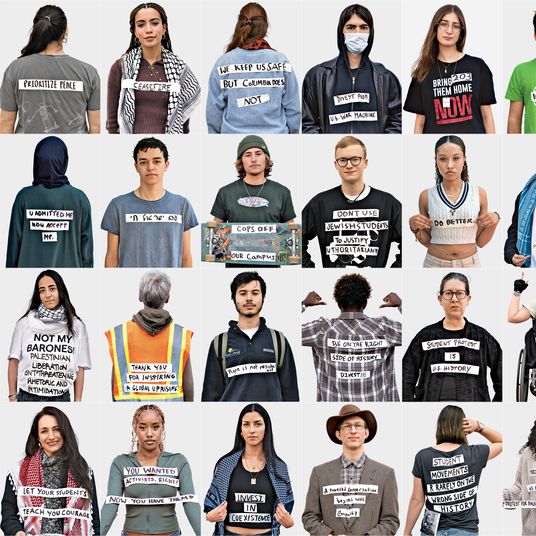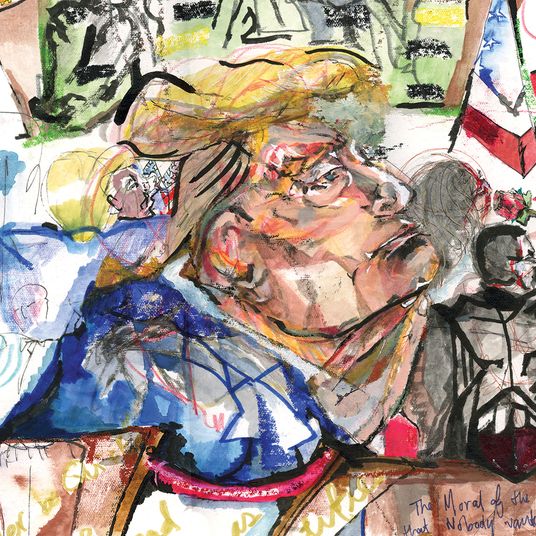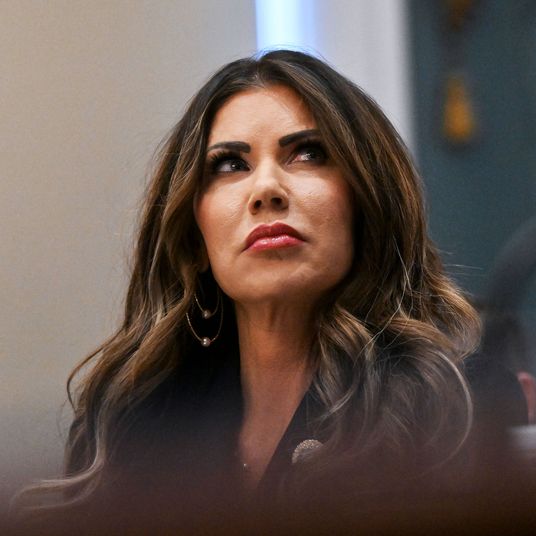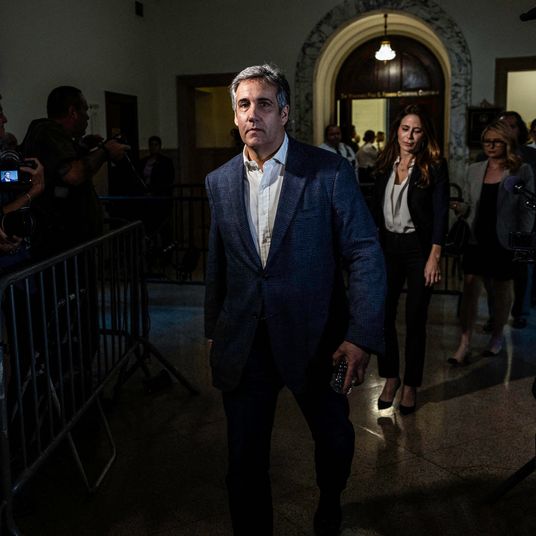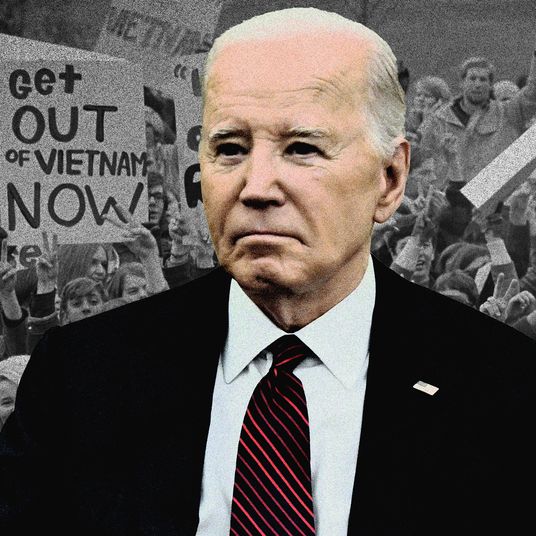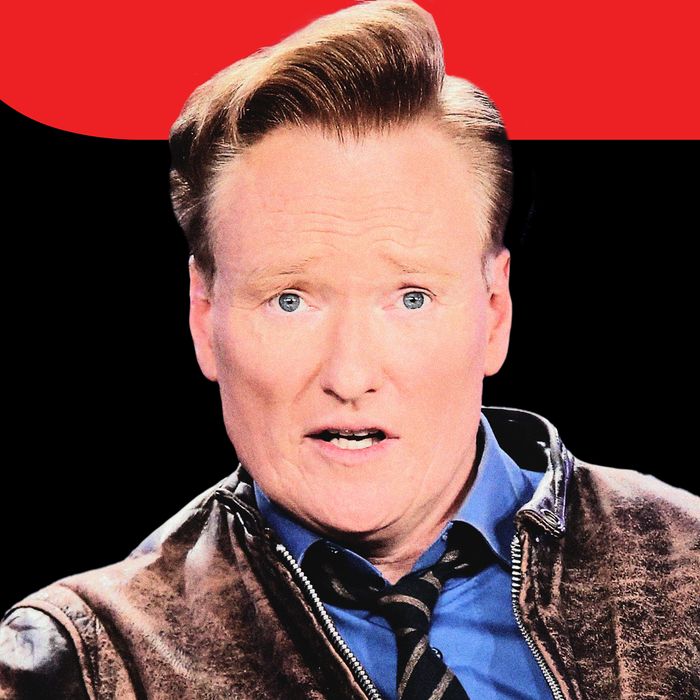
Conan O’Brien doesn’t pay much attention to late night anymore. He gave up his hosting desk for a less stressful podcast, a massive SiriusXM deal, and, most recently, a new travel show on HBO Max, Conan O’Brien Must Go, in which he gets to hop the globe, talk to strangers, and help Nordic fisherman solve their differences. In the latest episode of On With Kara Swisher, Kara trades interviewing notes with the late-night legend, asks him about his own experience on the picket line, and tries, unsuccessfully, to drill him for info about his business model. They also discuss the dramatic recent changes in the TV industry, whether or not AI is a threat to comedy, and the benefits of old-fashioned silliness. Their full conversation is below.

On With Kara Swisher
Subscribe on:
Kara Swisher: Hey, how are you doing, Conan? How’s it going?
Conan O’Brien: You know, I think it’s … good.
Kara Swisher: You think it’s good? All right. Well —
Conan O’Brien: No, when I say that, I mean, the-planets-are-still-in-rotation kind of good.
Kara Swisher: Oh, wow. That’s a hopeful view.
Conan O’Brien: That’s a very low bar of good.
Kara Swisher: It is. I know. I know, because it could go off rotation, then what will you do?
Conan O’Brien: It takes millennia. I won’t be here when it happens.
Kara Swisher: In any case, when I was working at the Washington Post, I was a news aide in the style section. It was a party for Tom Shales. But you remember Shales — he wrote, if you recall, a devastating review of your show in ’93, but in ’96 he said you were the only good thing on late night.
Conan O’Brien: Yeah, that was quite a turnaround. I was eternally grateful for that, and that was very nice. That was something I did not see coming. And it was a different era, too, in television where, when you think about it, Tom Shales had so much power. The media has changed so much that I’m hard-pressed to think of a television critic who could potentially end a television show. But Tom Shale certainly had that power. That’s a really fascinating, kind of like a benchmark to look at the power that, say a Tom Shales had in the 1980s and ’90s and today, where there’s just a constant drumbeat of noise about television and people liking or not liking. And what does it seem to matter? I don’t know.
Kara Swisher: You sort of, I don’t know how to phrase it, quasi retired two years ago from late night.
Conan O’Brien: What I retired from was the volume business of late-night television, because I loved it. I really did love it. And I did it for 28 years, and I did thousands and thousands and thousands of hours, and I’m told four of them are quite good, and I loved that very much. But what I started to see is that there were things that I became kind of more in love with, and the podcast is one of them, fortunately. That was just a happy accident. But another one was doing these travel shows, going to Cuba, going to different countries and shooting remotes with people that I found and doing found comedy around the world; it was electrifying. And I realized I’d rather be doing this. And late night had changed because there were so many late-night shows, and I started to feel: Okay, I’ve done this. We only get so much time, and I’m no spring chicken. I’d like to really focus on some of these other things.
Kara Swisher: Well, the things you like, right?
Conan O’Brien: Yeah.
Kara Swisher: The things that you like, because it gets to be a grind. One person recently said, one of the reasons during the strike, and we’ll get to it in a minute, there’s not a differentiation between all you white guys, right? There is a differentiation of style. You have a certain style. John Oliver has a certain style. Jon Stewart. Has that been a mistake to sort of have the same look for late night, now that you’re sort of reflecting it behind you?
Conan O’Brien: I think it’s something that certainly over time, yeah, you can look at. I mean, I think a lot of pop culture, in time, when you look back on it, can look silly. I mean, the 1950s can look really silly to us now, and so can the ’60s and the ’70s, all for different reasons. But certainly having just a blank mass of white males is not good and looks absurd now. And so at the time, back in the day, you have your blinders on and your nose to the grindstone, and you’re just doing your show, and you’re doing your best to make a late-night show every night. And I’m very proud of the work that I did. And then all this time goes by, and you see the culture change radically. And the thing to do is just a combination of things, I think evolve, get out of the way when necessary, shut up when necessary. Listen. All these things I think are crucial to evolving. And I’m trying to do that in my life. And I imagine a lot of my peers are trying to do the same thing.
Kara Swisher: Or figure it out. They’re very confused. I know with Seth Meyers … I think they’re all confused about what’s happening, but you —
Conan O’Brien: Seth is confused in general. He was hit on the head about six years ago. It happened in a shopping mall.
Kara Swisher: It’s a tragic accident.
Conan O’Brien: He was reaching for a tall package and it hit him in a bad spot. So that’s just sad.
Kara Swisher: And you weren’t there to help him and you were not going help him.
Conan O’Brien: I was there and I refused to help him. Okay.
Kara Swisher: I see.
Conan O’Brien: No late-night host helps another late-night host.
Kara Swisher: Yeah, it was weights, and he really wanted to bulk up like Mark Zuckerberg. Exactly. But interesting you use the term grind because what you’ve done is sort of become entrepreneurial. You have a podcast brand. Your Team Coco just reported 180 million downloads a year. Your last series, Conan Without Borders, won an Emmy. You’ve got this new show coming out on Max, which we’ll talk about. But about a year ago, you sold Team Coco to SiriusXM for $150 million. What?
Conan O’Brien: Oh no, that was Canadian.
Kara Swisher: Canadian.
Conan O’Brien: Yeah.
Kara Swisher: What kind of deal is it? It’s a five-year talent deal, but do you have any specifics?
Conan O’Brien: I really don’t.
Kara Swisher: They didn’t hand you a hundred —
Conan O’Brien: Oh God, no. God no. No one would ever hand me that kind of money. That would be a terrible mistake. I asked to be paid in real estate, but the problem is I wasn’t specific. So it’s all on the Florida panhandle, and I’m told it’s dreadful land. There’s no aquifer. I never said I was a smart businessman, but yeah, I did sell, and it’s been nice working with Sirius because they let me have a Sirius channel. So that is a lot of fun because it’s not just the podcast, but we can repurpose all kinds of stuff we did on late night that happens to work really well on the radio. And one of the things that just was a lucky accident is that I was never aggressively topical in my comedy. We would do some topicality, but I think as late-night hosts go, I was more absurdist. And I just like the silly and that stuff — it turns out there are pieces that I can watch that we did in 1997 or 2007 or 2017 that make people laugh now, because they’re working off universal themes.
So it’s really fun when I’m in a rental car to see if they’ve got Sirius and then put myself on. And it is the most solipsistic, ego-driven thing I can do.
Kara Swisher: And you just drive around.
Conan O’Brien: As I just drive around, and sometimes if someone’s with me, I go, “Isn’t he something? Isn’t he great?” Do you ever do that, Kara? Do you ever listen to yourself and go, “Isn’t —”
Kara Swisher: Every day of the week and twice on Sunday?
Conan O’Brien: Isn’t it fun to listen to yourself and turn to someone else in the car and go, “I’m killing it!”
Kara Swisher: That was good.
Conan O’Brien: “I’m killing it!”
Kara Swisher: That was good. I did that to my wife the other day. But you timed it well before this industrywide slump. Do you think they’re getting their money’s worth? What are they getting from you? I’d love to understand the terms of the deal.
Conan O’Brien: Anyone who works with Conan O’Brien is getting their money’s worth, trust me.
Kara Swisher: Okay. All right. But explain, because a lot of these deals … Go ahead.
Conan O’Brien: I’m a very hard worker — the podcast, which is a big draw. We get big stars, as do you. But yeah, no one’s complaining, let’s put it that way. And if they are, I’m not listening.
Kara Swisher: Right, because some of those deals didn’t work out. The Journal just published a report, which, everyone knew at the time, was detailing how Spotify’s billion-dollar podcast investments flopped, big-name podcasts like Harry and Meghan’s and others. The Obamas. I always feel like, Well, the good stuff does well, you don’t have to sign them. But when they were doing the celebrity deals, I was like, No, no, no, it’s not going to math out, essentially. The math ain’t happening. How did you think about it in terms of making money in the future of podcasting?
Conan O’Brien: Well, mostly thinking about it in terms of what’s going to give us, and by saying “us,” I mean this Team Coco company, what’s going to give us some solidity? What’s going to give us some security as we build out this business? So we have a nice space. We have a great staff. Eduardo’s here. He’s not paid. He’s asked to be paid, but I consider him volunteer, which I’m also told is illegal, but it’s worked out.
Kara Swisher: Talk about the economics. Are you involved in it? I’m quite deeply involved in the economics.
Conan O’Brien: I am not deeply involved in the economics. I have the same approach to my work as, say, the great slugger. Reggie Jackson used to say, “See ball, hit ball.” And that is how I approach comedy, which is: I will go in, I will meet every day with Adam Sachs, Jeff Ross, we’ll talk about things. And then I will go in, and I will do my best to make a lot of really good content. And I will work with people who I think are good and talented and who also I think can provide good content. And I’ll look at things where I think my talents could probably be put to some use and that might excite me at this later stage in my life, and I will do my best. And so that’s the way I look at it. And I do not get into the weeds on 3 percent —
Kara Swisher: Advertising, subscription, et cetera.
Conan O’Brien: No, I mean, what I get is I get broad updates, but they more or less deal with me the way … people speak to me the way they did to Reagan late in the second presidential term. And I just sit there going, “Well, yes, yes. Well, yes, yes.” And I just know that it’s morning in America again, and I’m beloved.
Kara Swisher: You’re beloved. Is there a lifestyle difference in terms of being … Because late-night television is a lot of jazz hands, back in the day, I guess back in the hot days. What is the difference in your life?
Conan O’Brien: I think I have less … I used to, for years and years and years, I would wake up every morning and without trying to sound overly dramatic, but I am someone who takes — it’s funny, it’s not really funny — but I could probably come across to a lot of people as, “Oh, he’s so silly. And he makes a lot of jokes, and he takes things very lightly.” And I’ve never been that person. I take things very seriously, and I am that person. But I also, when I’m given an assignment, I take it very seriously, and it’s in my nature. I don’t want to let people down.
Kara Swisher: The good student.
Conan O’Brien: Yeah, exactly. The flaw of the “good student” is you’re trying so hard to do a good job that you can lose sight of whatever art you’re trying to make without sounding too highfalutin. So I think for years and years and years, I would wake up, and I was so driven by, What’s the show today? How’s it going? How did we do this week? What does the network think? How are things? Are we repeating ourselves too much? What’s the next challenge? And I felt that way for, God, I started in ’93, and I think that was my M.O. for 20-some odd years, and I started to get better in the later part of the TBS show, but now that my life —
Kara Swisher: What got better? What got better for you?
Conan O’Brien: I think it was eventually, we went to, finally toward the end, we went to half an hour and I remembered feeling a huge difference. Half an hour and an hour, it’s more than just a 30-minute difference. I don’t know how to explain it, but you feel this responsibility the whole time for a longer period of time. So I don’t know, I just felt that that helped, was going to the … And you have to admit, or you have to remember, toward the end of my run, COVID hit and I think COVID accelerated things a bit because I was doing interviews, late-night interviews on Zoom. And I remember just feeling, Yeah, I know COVID is going to depart and things are going to go back to normal, but I do think to a degree, COVID may have accelerated it a little bit.
Kara Swisher: Everything.
Conan O’Brien: Meaning I might’ve done 30 years instead of 28, but then I thought, Why stick around for two years?
Kara Swisher: As it’s on its last legs?
Conan O’Brien: Yeah. Leave now and it’s been fun, it’s been such an amazing gift. I love this podcast. I love the travel shows. Let’s do this transition now and let’s not wait around to have some cool three-zero anniversary, especially, as you say, when there’s this, the culture’s changing so quickly.
Kara Swisher: Yeah. The culture and TV viewership is down across the board. Ad revenue across the top late shows is down 60 percent from its peak in 2016, which is incredible. Obviously the recent strike didn’t help. I agree with you on COVID.
Conan O’Brien: Do you know why it’s down so much, Kara? It’s because I left.
Kara Swisher: You left. Is that it?
Conan O’Brien: You know that, right? No, no, it’s true. I’ve got a lot of data here that I will not share with you that says —
Kara Swisher: I think it’s maybe secular changes.
Conan O’Brien: It’s been all linked to my departure.
Kara Swisher: I’ll look into that. So do you think it’s on its last legs or not? Or do you ever think about going back to TV?
Conan O’Brien: Um, I grew up watching Johnny Carson and there was one late-night host, and then there were two and then there were three. And I think at a certain point, the whole mechanism, I think the technology changed so that people have … you know, there were so many people that used to watch me because they didn’t have much choice. It’s 12:30 at night, they had to wake up and take a medication or a baby’s crying, I’ll just watch Conan, because there wasn’t a lot of choice. Now you have a choice between watching a late-night host or anything that’s ever been shot or recorded in the history of mankind. Do you know what I mean? You can watch the director’s cut of Lawrence of Arabia, you can watch any Merchant Ivory movie, you can watch all of Fawlty Towers — I mean, anything. So it was so much more difficult now.
Kara Swisher: Well, also you’d get FOMO as a viewer if you missed a big interview on late night and there was nowhere else. And one of the things I’d love you to address is the changing sense of humor. Late night came under attack for things like punching down on Britney Spears’s, for example, mental state. That’s just one example. Is it the changing nature of humor, do you think? I mean obviously you’ve been in comedy for your entire career. Is that something that’s happened or is everybody’s a jokester? Now Elon Musk makes jokes.
Conan O’Brien: I’m not sure they’re jokes. I don’t know what Elon’s doing.
Kara Swisher: No, they’re not.
Conan O’Brien: But he needs to get better AI. He should fire his current AI and get better AI. Wow. Well, yes, I mean obviously if you look at old shows from the ’70s, a talk-show host could get a DUI and then joke about it on the air, and there’s like applause. And that’s just one small example and there are thousands where people have become more sophisticated, more sensitive. And I have people come up to me on the street and say, “Hey, Conan, isn’t it tough today? You can’t make a joke about anything. It’s too P.C.”
And I actually don’t agree with them. I think there’s still plenty of things that are funny. And to me, that’s kind of an excuse to say, “Yep, I’m shackled. I can’t be funny anymore.” Well, if being funny meant just being incredibly insensitive — that’s probably not great.
Kara Swisher: Yeah. You don’t do political humor. Is that something that’s eroded?
Conan O’Brien: For me, it was always what serves the comedy and what’s funny to me. The truest, most visceral comedy to me is always going to be Warner Bros. cartoons that were made in the 1940s and ’50s. That’s the stuff I grew up on that was shown in reruns. So I liked that kind of comedy. I was never as comfortable with comedy where I needed to make a point about something because to me that —
Kara Swisher: Like Trump gave the people the opportunity to do that.
Conan O’Brien: I just never wanted … It didn’t serve comedy well. I actually think Trump has been … Whatever people say, all kinds of, he’s committed all these different horrible acts. But I think one of the worst is I think he’s bad for comedy because it’s so —
Kara Swisher: Why is that?
Conan O’Brien: Because years and years and years ago in another lifetime, when I worked on the Lampoon back in college, what we always knew is that you can do a parody of Sports Illustrated. We would parody magazines. You can do a parody of Newsweek magazine. I wrote a parody of George Will where he’s defending the feudal system. It was like, you can parody things, that you can parody People magazine about its superficiality, and it’s put Brooke Shields on the cover holding a fish. You can parody those things, but what you can never do is parody the National Enquirer because the National Enquirer cannot be parodied. If you go and buy a real National Enquirer, it says “Elvis sighted in UFO; he has tentacles for arms. Ghost baby turns into vampire and attacks Michael Jackson’s ghost.” There’s no way to parody that. You can’t parody something that already has that crazy irregular shape. It’s not possible.
So I always thought when Trump came along, what a lot of people have to revert to is: “Doesn’t he suck? I hate that guy. He’s an asshole.” And those aren’t jokes. And so I think it’s just … I’m really going on a limb here saying: That’s his greatest crime, that I think he’s hurt political comedy by being so outlandish himself. I think the January 6 thing is a blip compared to how much he’s hurt comedy.
Kara Swisher: Yeah. Okay, good. I’m glad you’ve gone out there and said that.
Conan O’Brien: Yeah, it’s about time. Everyone’s thinking it.
Kara Swisher: It’s about time someone told the truth about Donald Trump.
We’ve talked a little bit about how late night is problematic or how it’s not doing as well. But I still like a lot of it, or some of it. Make a case for it as an art form — or is it going toward someone like Greg Gutfeld, who’s getting great ratings over at Fox at 10 p.m. doing mostly political humor on what is a microbudget, it looks like, in a non-union shop? What does his success say about the state of late night? What do you like about it?
Conan O’Brien: Well, I’ll first admit I haven’t seen … and it’s like anything else. I drove a bus for 28 years and then I retired from the bus company. And so I’m guilty of: I don’t ride the bus much anymore. I will walk rather than get on the bus. So I don’t watch a lot of — I see little things here and there, but I don’t really know Gutfeld. And that’s not me just being a knee-jerk “Fox! And I’m not going to watch that man.” It’s more like I honestly am not aware of what’s happening. So I don’t really know. I just think that the bigger question isn’t what’s the future of late night, because we all know that time itself is becoming irrelevant, meaning the time of night.
Kara Swisher: Right. You can do it whenever you want.
Conan O’Brien: So honestly, I think we’re probably going to have to part company with the term late night at a certain point, and I’m not just saying this because I’m no longer part of it. I hate when people say, “Well, I’ve left football now, and so now it’s irrelevant.” Well, no, that’s a dick move. I don’t believe that. I just believe that it was changing when I was there and it’s going to continue to change —
Kara Swisher: Has … go ahead, finish.
Conan O’Brien: Well, just that these talented — I believe this — I believe talent will out. I believe that talented people who have something, a funny style or a way of connecting to people, will continue to flourish. It’s just that the medium will change around them. So it might not be called “late night.” For example, I have more young people come up to me. I took my daughter to a music festival, to Outside Lands in San Francisco, and we had a blast. She’s my liaison, my spirit guide to a much cooler, hipper world that I wouldn’t normally see, but I do love music. She took me to this thing and so many young people came up to me and what they all want to talk to me about is the podcast. And this isn’t just propaganda.
Kara Swisher: Me too.
Conan O’Brien: That’s what they listen to. And they listen to that and it’s in their ear. And I’ve run into people who have their earbuds in and they’ll tap me on the shoulder and say, “I’m listening to you now.”
Kara Swisher: That happened to me the other day.
Conan O’Brien: Yeah. And I find that to be … That’s erotic. No, it’s really weird to —
Kara Swisher: I always think of you as erotic. That’s my first thought.
Conan O’Brien: You know what’s sad?
Kara Swisher: I say “Conan O’Brien, erotic. Hot.”
Conan O’Brien: The fact that you’re saying that right now means you consider it a joke. And, uh —
Kara Swisher: Yes I do. Yes I do.
Conan O’Brien: And I’m telling you, Eduardo — Eduardo finds me very erotic.
But I guess what I’m saying is what I’m doing, it’s just still me. It was me in September of 1993, and it’s me now.
Kara Swisher: I think intimate is the word you’re trying to get to, not erotic.
Conan O’Brien: Well, yes, exactly. Well, yes, I have trouble with intimacy.
Kara Swisher: Yes, I can see.
Conan O’Brien: But I guess what I’m saying is instead of whatever the state of late night is, it feels like, well, no, it’s going to be, there will continue to be comedians and comedic people, and they will exist in some form in whatever the technology is. So if five years from now podcasts are passé and there’s a capsule that you can put between your cheek and gum and it slowly dissolves over the day, I’m going to try and figure out a way to get into that capsule.
Kara Swisher: Yeah. Okay. All right. That sounds … sexy.
Conan O’Brien: And mine will have a minty flavor.
Kara Swisher: I’m going to switch to the writers’ strike. It’s affecting your new show, Conan O’Brien Must Go, which we’ll get to in just a second. It’s affecting late night. I had Barry Diller on recently. He said that every month the strike goes on past Labor Day essentially brings the whole industry closer to, he used the word collapse. How do you look at it? Last strike was in ’07, ’08.
Conan O’Brien: Yeah. This is my third strike. My first one was ’88, and I was a writer on Saturday Night Live and I was a kid, and I remember showing up at the picket line, and they handed me a sign, and the graphic was like an Underwood typewriter from 1915, 1920, and a big Ghostbusters thing over it. And so I’m walking in the picket line feeling really noble. And a middle-aged woman stopped me and said, “So let me get this straight. You’re striking because you want electric typewriters.” I was like, “Oh, okay. That’s embarrassing. Yes, we’re tired of these manuals. We want electric.” I went through that one, went through whatever, 2008. And so this is the third one. And I feel like, for me to really understand this strike, I would have to be 25 years old and in a completely different position than I am now, because I’m at the later end of a very long career.
And when I talk to younger writers, they tell me how difficult it is and how much the business has changed. And then I sympathize because I lived … I mean, I don’t know how else to say it. I was really lucky. I feel like a British rockstar who came of age in 1964 with my band. And that was the time to be a British rockstar. And we had a great run and we did stadium shows, and it was really amazing. And it’s much tougher for people making music today. I just think a lot of it, my time was so different and I feel that I have tried very hard to understand. I think the Netflix of it all, and the streaming is so complicated. And it’s so, they don’t reveal how a show is doing. And that was such an essential part of my life as a TV performer is, you knew every second how you were doing.
Kara Swisher: Yep. It was transparent.
Conan O’Brien: It was transparent. And now there’s a black box. I don’t understand that. And it’s also, some of these companies are so big — you know, Apple, Amazon — that this isn’t even their core business. This is like a lemonade stand they’ve got going.
Kara Swisher: Yeah. I always tell creators they’re selling toilet paper at Amazon, just so you know, that’s what they’re doing. But in the last strike in ’07, ’08, you paid your staff before going back on air. Talk about that. Because other hosts now who are doing — Colbert, Kimmel, Fallon, Meyers, and Oliver — a very diverse group of people, have recently gotten together to make Strike Force Five, a podcast to benefit their staff. Talk about this, in supporting them, because these are all union shops. As I said, the ones on Fox are not. How do you think that works out? That’s not really a solution to the problem. Why didn’t they invite you, by the way?
Conan O’Brien: Well, I think I’m the old man. I think they’re these punk kids running down the street and I’m the old man looking out the window eating tuna out of a can. “Why are they doing this without me?” No, I’d just mess it up. They did the right thing.
I think everyone has their own attitude about it. Mine was: I started out as a TV writer. I’m very connected to my writers and would hang out with them sometimes too much. I would get kicked out of the writing room because I would be doing so many bits that I was wasting time. And they would laugh and then they would say, “You know, you really got to go because we have to write tomorrow’s show. And you just keep doing these bits that are taking it in the wrong direction.” And so for me, I always felt very close to my writing staff, and I felt like we’re in this together. So it felt natural to want to try and support them, help them. And I think a lot of people would feel that way. If you’re working, it’s not the same as, I was not the corporate vice-chair of Exxon and I was saying, “Oh, there’s trouble on platform 17 off the coast of Buenos Aires. I’m going to go over there and hang out with those guys, men and women, and chip in.” I never ran a giant shop. I always felt like I ran kind of a mom-and-pop cookie factory in a Keebler’s elf tree. And so that creates a very different dynamic and —
Kara Swisher: Between you and the —
Conan O’Brien: Between me and the people I’m working with. And I think we followed that through on the podcast. It’s very — Eduardo, feel free to jump in.
Eduardo: I agree.
Conan O’Brien: “At the risk of being fired, I agree.”
Kara Swisher: What if he said, “I disagree”?
Conan O’Brien: Yeah. He’s blinking in Morse code. “Please help me. This is my location.”
So I think it’s just keeping it really simple, which is, I think when things get big is when things get very complicated. So obviously when these companies become massive and the profits are massive, that’s when people lose touch. And when I say “people,” I mean, I always like to remind everyone that the evil person that you’re against is just another version of you. We’re all humans and we are all … When you get up front and close to people, you often quickly find out how much alike we all are. So it’s just that the structures have gotten so big, they’re so massive that there can be so much misunderstanding. There can be —
Kara Swisher: Yeah, there’s been a lot of it here for sure. And that’s what slowed it down.
Conan O’Brien: Yeah. And I do think, unfortunately, a good deal is where both sides are somewhat disappointed.
Kara Swisher: Right. What’s the effect on your new show Conan O’Brien Must Go, which is a travelogue?
Conan O’Brien: Yeah, it’s a travelogue. We —
Kara Swisher: With costumes? Yeah.
Conan O’Brien: Yeah, a costume drama. It is basically a version of what I was doing, but with a twist, which is I talk to celebrities on the podcast, but I also talk to civilians around the world and have conversations with them. And then I show up unannounced in their country and get involved in their lives.
Kara Swisher: Give an example. So it’s the concept of: You just show up and make yourself irritating.
Conan O’Brien: Yeah. Talking to a guy who runs a fishing boat off the coast of Bergen, Norway, and he really … Oh, he’s actually he’s up at the Lofoten Islands, I’m sorry, which is even farther north. And he has a fishing boat, and he doesn’t really get along with the guy he’s on the boat with. And we chatted for a while, and I decided, I’ll go up there and counsel these two on the boat. And it was really fun. And it turns out I’m a terrible fisherman. But it’s also just an excuse to get into the country and do the kind of travel comedy that I’ve always loved doing.
Kara Swisher: How did you sell it? It sounds like a fantastic boondoggle for you. Does it make money? How did you convince them?
Conan O’Brien: Well, we haven’t done it yet, so we did two of them. It could be a complete sinkhole of money. No, the trick is to keep the cost down. So I make all the clothing myself, which is —
Kara Swisher: I liked your Viking outfit.
Conan O’Brien: Thank you.
Kara Swisher: That looks nice. You look good as a Viking.
Conan O’Brien: Thank you very much. It’s the DNA, it’s in the DNA. I’m a redhead.
Kara Swisher: So you’re trying to save money? Like how, like besides making your own clothes which you —
Conan O’Brien: Oh, no, no, no — not saying. No, I’m just saying we’re able to do it on a … we have a decent budget, and I think we are making good content and we made —
Kara Swisher: What is the budget?
Conan O’Brien: I don’t know the budget of the show. Good lord. I’ve got to get Jeff Ross on the line. I need the budget. I feel like I’m being audited, Kara! “What’s going on here? What is the budget? Now wait a minute, who got coffee? Did you pay for the coffee yourself? Where’s the receipt?”
Uh, I don’t know the budget of the show offhand.
Kara Swisher: What I’m wondering is what’s the economics of it? What do you consider success on this show? How do you —
Conan O’Brien: Well, I would consider —
Kara Swisher: Are you going to give streaming numbers? Are they telling you?
Conan O’Brien: Oh, I’m going to completely black-box this thing: “No, Conan’s doing quite well. There’s no reason to even question it. Trust us!” No, we are going to … It hasn’t even come out yet. So I will be made very aware how it does when it does come out. We made two episodes; they’re specials essentially. We made two specials, and we wanted to make four and release them all at the same time, but only two are in the can. The writers’ strike came along, so we shut it down. And it will remain shut down until things get resolved. So it will be showing up, God knows when now, I don’t know. But when it does, it’s going to make billions of dollars. Billions.
Kara Swisher: Why not? So once this travel thing goes up, what’s the next thing you’re going to work on?
Conan O’Brien: I don’t know, probably dying, passing away. I don’t know, I have no idea. I’m working on my death after that. Yeah. I really want to give it some thought.
Kara Swisher: Given your advanced age, how do you look at the AI issue in this strike? It’s a bigger one, beyond the strike. Is that something that worries you?
Conan O’Brien: You know what I have to say? Well, it’s funny, I read a really good piece by Simon Rich, a great comedy writer, and he wrote a piece where he got a really good look at AI. Not ChatGPT or whatever, but he got a look at the AI beyond that, and it had frightened him because it was so good. And it wasn’t so much a comedy piece. He was just talking about his natural reaction. And then he said at the very end, the thing that I thought was very powerful is he said, “Look, whatever this thing is, I know me. I’m still going to write. I’m still going to obsess over thinking of weird ideas. I don’t know what I’m going to get paid.” But there’s a compulsion to do this. And I think, I know this sounds very optimistic because it’s so big, it’s so much bigger than all of us, AI.
And I cannot begin to comprehend what it means. No one can see the future, no one can see one eighth of an inch into the future. But, I do have some faith in the insane compulsive drive of people. Whether they’re comedy writers, or TV writers, movie writers, people that write novels, essayists. There’s just going to be whatever the computer does, there’s going to be something I believe, and this is just me, that drives us to keep going in different directions that simulated intelligence can’t come up with.
Kara Swisher: Meaning computers can’t be funny? Or …
Conan O’Brien: Well, just like, I mean, the analogy that I’ve heard other people use — this is not mine, but portrait painters were around for thousands of years, and then the camera shows up in the 1840s, ’50s, and ’60s. And suddenly painting becomes different. You get cubism, and blue periods, and abstraction. And so it’s possible that I do think that the Guild is absolutely right to investigate, and to do as much as they can to protect writers now from AI. And I think this is —
Kara Swisher: And actors.
Conan O’Brien: Exactly, and actors, and people protecting their images, I think they are 100 percent right to do that and to do everything they can. And then beyond that, I just have to have faith that it’s humanity’s job to evolve past what these machines can do. That’s the second corollary to this. That might be overly optimistic. I’ve been accused of that before. But —
Kara Swisher: Yes, I feel like it is. It’s interesting when you think like remember Max Headroom and stuff like —
Conan O’Brien: You just dismissed everything I said so quickly.
Kara Swisher: I think it can do a lot. Look at everything that’s replaced already.
Conan O’Brien: But listen, okay, but guess what? If they can do a lot, I don’t think we can legislate our way out of it.
Kara Swisher: No, we can’t.
Conan O’Brien: I mean, that’s the other thing too, is that if — so my vision is the one that offers some hope. In your vision, these things are our overlords five years from now, and I don’t care what deal gets worked out.
Kara Swisher: Ten.
Conan O’Brien: Oh, nine, let’s make it nine. Because I —
Kara Swisher: No, I do … Here’s what I say: I’m not afraid of AI. I’m afraid of the people who own the AI. That’s who I’m afraid of. And it’s all the big companies. Speaking of big, they’re even bigger than that. And they’ll impose it because they impose it on communications or on —
Conan O’Brien: Right, right.
Kara Swisher: I want to wrap up with some questions about interviewing. That’s what you do on the podcast and which you did in late night for almost 28 years. When do you think about interviewing, the platonic interviewer, and what’s their role, how do you approach it?
Conan O’Brien: People go in with different agendas when they interview. I have always tried to figure out, especially back when I was in the volume business game where you’re talking to three people a night, five nights a week, and very few vacations. You’re talking to a lot of people, and people are coming through that you might not naturally be interested in. I am a curious person, and I would try to find out, what am I really curious about with this person? What drives a conversation is, what are you curious about?
As I moved on into the podcast, I talk to fewer people and there were almost universally people that I really want to talk to. I’m very fortunate that way. But I still, I’m always fascinated by all these skills people have that I don’t have, and all these things people can do that I can’t do, and I want to know about that. And so that just drives the conversation.
Kara Swisher: The curiosity. You describe your interview style as curious.
Conan O’Brien: I’m very curious, but I also I think I have a need. It was probably a disadvantage in parts of my life, but I really do like to connect with people. I really want to make that connection and that drive to make that connection. And I do this — I will chat with people on the street or in a restaurant for a very long time, and I’ll ask them about themselves to a point where it’s sometimes ridiculous and they say, “Look, Conan, I just wanted a selfie. I got to go.” And I’m like, “Okay. Right, right.” But that is part of me. I do like to connect with people. That’s a high, I get a contact high off that.
Kara Swisher: That’s your specific goal. What do you want the audience to get out of it?
Conan O’Brien: I’ve always thought that there’s a responsibility as a host to be a host, and that part of that means it’s a luxury to put somebody down. It’s a luxury to mistreat them, it’s a luxury to be rude to them. And you shouldn’t have that luxury unless it’s really merited. If someone is being an asshole, if somebody is disrespecting you, then the gloves can come off. But other than that, it’s your job to take care of them even when you’re not having a good time, and you find them to be really distant. And that’s an old-fashioned Catholic upbringing. I just thought, “I’m the host of this fucking thing.”
Kara Swisher: Of all the interviews you’ve done, who was the worst guest?
Conan O’Brien: Oh, well, I hate to put it all on them because it just feels, uh —
Kara Swisher: You think it’s your fault?
Conan O’Brien: Sure. I think really early on, and it wasn’t like, I just didn’t have the chops yet, it was like 1993, I think, and we had Eartha Kitt on the show. And I just, she was very much — I’d say, “Now, you worked with James Dean.” And she’d say, “Mm-hmm, well, what do you care about that?” She was very challenging and provocative. And I think if I’d had more seasoning, which I got quickly, but I didn’t have it then, I would’ve been able to turn that on its head and had fun with it, but I wasn’t able to.
And it was just not good for her, not good for me. And I remembered after that interview thinking, That was bad. That was really bad. And I was very at first knee-jerk, Why was she so difficult? and then realizing, No, it’s an opportunity. It was an opportunity, and I just wasn’t there yet. I had just got out in the court and tried to make a three-point shot, and it went into the audience and killed a little boy. So, that was —
Kara Swisher: Well it’s Eartha Kitt. I would tread carefully around Eartha Kitt, but I’d slap back. Yeah.
Conan O’Brien: Yeah. She famously went after LBJ at the White House in the late ’60s, so she was not afraid of anything. And I just remembered it was the kind of interview where I’d say, “What’d you have for breakfast today?”
“What do you care?” — it was that kind of thing. So it was just going nowhere fast, and that famously was one where I thought, “Maybe it would be best if I was just hit by a car and someone else hosted this show.” I don’t know.
Kara Swisher: Yeah, right. Who made you most nervous in the leadup to an interview?
Conan O’Brien: That’s really interesting. I would say, you know it’s funny because the nerves went away at a certain point. I would say initially, the first time I interviewed Paul McCartney, just because I’m such a music person, and I know when you idolize someone and you know too much about them, it actually hurts the interview a little bit. And so I know what he had for lunch on February 3, 1967, so I probably shouldn’t even be talking to him. So I got over it because we ended up talking a bunch of times over the years, but the first time I remember he’s talking and I was looking at his hands as he was talking and thinking, “So, those are the hands that made the shape of the F chord when he recorded …” And you’re like, What are you doing?”It’s just —
Kara Swisher: You’re too much of a fanboy.
Conan O’Brien: Yeah, and it’s also, you’re fetishizing this person and it gets into religious relics, like, “Those hands should be put in a pot, and old women should have to bow before them and say their rosary.” It’s just stupid.
Kara Swisher: So I have two more questions: Interview you’re most proud of?
Conan O’Brien: Hmm. Wow.
Kara Swisher: I’ll answer mine: Steve Jobs and Bill Gates together.
Conan O’Brien: I’m going to say the same thing about the time I interviewed Steve Jobs and Bill Gates together. It was right after you, you had just left the room and they both said, “Man, that was a drag.”
Kara Swisher: Thank God.
Conan O’Brien: And I said, “Cheer up, guys. Kara’s gone, and now it’s fun time.”
Kara Swisher: Because they’re super-fun. Bill Gates is hysterical.
Conan O’Brien: I don’t know. who was the most … say it again. It was the most excited?
Kara Swisher: Proudest.
Conan O’Brien: Oh, proudest. Yeah. Wow. I don’t know. It might be kind of unusual: There was one, I got to talk to Robert Caro, and I just thought sometimes when you get to stretch a different muscle … I’m not going to say that that’s the answer because obviously it’s been too many people in too long and I can’t say, but sometimes it’s the person you’re not thinking about: It’s the historian, it’s the biographer. People might think, Well, it must’ve been so exciting when you talk to whatever famous rockstar or super-famous movie star.
I think it’s the person who devoted their life to understanding Lyndon Johnson and has spent all of their life quietly working way on an electric typewriter in a small office in Manhattan to build something. And I felt like I had a good connection with him, and I was very proud of that. I was a fan, but I also felt like, Okay, I think I did well by him, which made me feel good.
Kara Swisher: That’s a good choice. Last question: who’s the dream guest you have not been able to book on TV or your podcast? Who would you be like, “That is who I want to talk to”?
Conan O’Brien: Oh, man. Well, the funny thing is, the caveat to that is do they have to be alive? Because for a long time I thought —
Kara Swisher: Oh, okay, give me a dead person.
Conan O’Brien: Well, I used to think when I first got my show — Nixon was still alive — and I used to think: What an amazing interview, because he is, when you think about it, he was like the comedy figure of the second half of the 20th century. People were immediately recognizable. All comedy revolved around Richard Nixon, but he also clearly probably knew a lot of things and had a lot to say, and if you could get him past these insecurities and foibles, he might have some really cool observations.
And I just thought, What if it got silly with Nixon? Wouldn’t that be absolutely fantastic? And I’m not even saying this, this has nothing to do with, “Hey, I just listened to Conan with Kara Swisher, and apparently he’s a big Nixon fan,” no, it’s not about that. I remember thinking he would be the ultimate guest because it would be a great historical guest, and also a great comedy guest because what if I could get him giggling? Or what if it just got outlandish in some way?
Kara Swisher: All right, do you have a dream guest otherwise that you would love to get that you’ve not been able to?
Conan O’Brien: Wow. I don’t know. I feel like … Who have I … I don’t know who’s, because every time I say them, they come along and then I go, “Oh,” so I don’t know who’s left. I hate that question. I hate that question.
Kara Swisher: I want to interview Dolly Parton and Taylor Swift together, and not talk about boyfriends or Kentucky. Talk only about business, about their tough business lady —
Conan O’Brien: Are you going to ask them, like you did me, “What’s the budget? How much did you clear?”
Kara Swisher: They know the budget, Conan. I don’t need to ask them. They know the budget.
Conan O’Brien: I’m not sure they do. Dolly will know the budget.
Kara Swisher: They do.
Conan O’Brien: Taylor won’t know it down to the —
Kara Swisher: Taylor will know the budget. She might.
Conan O’Brien: All right.
Kara Swisher: She might.
Conan O’Brien: She might. You went from she will to she might.
Kara Swisher: She’s —
Conan O’Brien: No, she’s very good.
Kara Swisher: No, she will.
Conan O’Brien: But you can be a good businessperson and not know every single detail of where the money’s going.
Kara Swisher: Okay. All right. Now, get over it.
Conan O’Brien: That’s called trust. It’s called trust, Kara.
Eduardo, you’re not stealing from me, are you?
Eduardo: No.
Kara Swisher: Thank you so much for coming on the show.
Conan O’Brien: All right. So nice to talk to you.
Kara Swisher: I appreciate it. And Eduardo?
Eduardo: Yes?
Kara Swisher: Keep stealing the money.
This interview has been edited for length and clarity.
On With Kara Swisher is produced by Nayeema Raza, Blakeney Schick, Cristian Castro Rossel, and Megan Burney, with mixing by Fernando Arruda, engineering by Christopher Shurtleff, and theme music by Trackademics. New episodes will drop every Monday and Thursday. Follow the show on Apple Podcasts, Spotify, or wherever you get your podcasts.
More From 'on with kara swisher'
- Roberta Kaplan Knows How to Let Trump Beat Himself
- On With Kara Swisher: Rahm Emanuel on the Appeal of Post-COVID Political Calm
- Josh Shapiro on Preparing for Another Biden-Trump Election in Pennsylvania







